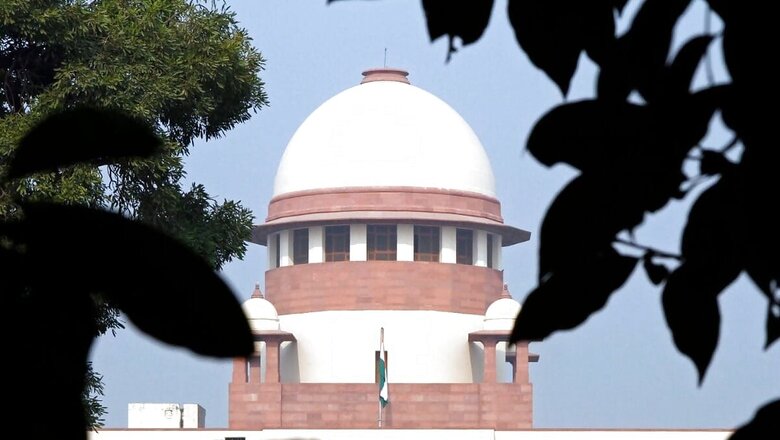
views
The Supreme Court has issued directions to all High Courts to ensure the digitisation of all records of criminal trials and civil suits at district courts for a “smooth judicial process”.
In a judgment passed on April 24 in the Jitendra Kumar Rode vs Union of India case, a bench of Justices Krishna Murari and Sanjay Karol stressed on the use of technology to preserve court records, and said, “technology has, in the present time become increasingly enmeshed with the systems of dispute resolution and adjudication with the trends pointing leading to all the more interplay, both supplementary and complimentary between technology and law.”
Issuing the directions to the registrar generals of the High Courts in this regard, the apex court emphasized that proper and regular digitisation of records is necessary for a smooth judicial process.
“The Registrar General of the High Courts shall ensure that in all cases of criminal trial, as well as civil suits, the digitization of records must be duly undertaken with promptitude at all District Courts, preferably within the time prescribed for filing an appeal within the laws of procedure (30 or 60 days),” said the judgement.
The bench further asked the concerned district judges to ensure that the records so digitized are verified as expeditiously as possible, once the system of digitization along with the system of authentication of the digitized records is in place in their judgeship.
“A continually updated record of register of records digitized shall be maintained with periodic reports being sent to the concerned High Courts for suitable directions,” it added.
The bench highlighted that the Supreme Court’s E-committee on September 24, 2021, has already issued an 18 steps Standard Operating Procedure (SOP) for digital preservation, which must be complied with.
“Judicial notice can be taken of the fact that, in accordance with the SOP issued, private entities providing specialized service have been contracted, and therefore considering the importance and essentiality of such record, a robust system of responsibility and accountability must be developed and fostered in order to ensure the proper protection and regular updation of all records facilitating the smooth functioning of the judicial process,” the order said.
The top court’s order came as it set aside the conviction of a person convicted under the Prevention of Corruption Act for receiving a bribe of Rs 500 in 1995 by Allahabad High Court in November 2022.
The High Court had upheld a 1999 trial court order, with a reduced sentence the records of the lower court were not available. The High Court relied upon a partially reconstructed record, based mostly on the complaint, for the conviction.
Setting aside the order, the apex court opined that, upholding conviction in the absence of original trial court records ‘cannot be said to be in consonance with due process of law and fairness’, as Criminal Procedure Code also requires an appellate court to examine the original records.
The judgement said that the benefit of doubt has to be extended to the accused since his possibility to appeal against the conviction was effectively extinguished due to the absence of records.
The top court noted that the alleged offence was committed 28 years ago and the relevant trial court record has not been able to be reconstructed, despite the efforts of the courts.
“Protection of the rights under Article 21 entails protection of liberty from any restriction thereupon in the absence of fair legal procedure. Fair legal procedure includes the opportunity for the person filing an appeal to question the conclusions drawn by the trial court. The same can only be done when the record is available with the court of appeal,” the bench said, while acquitting the man.
Read all the Latest India News here
















Comments
0 comment